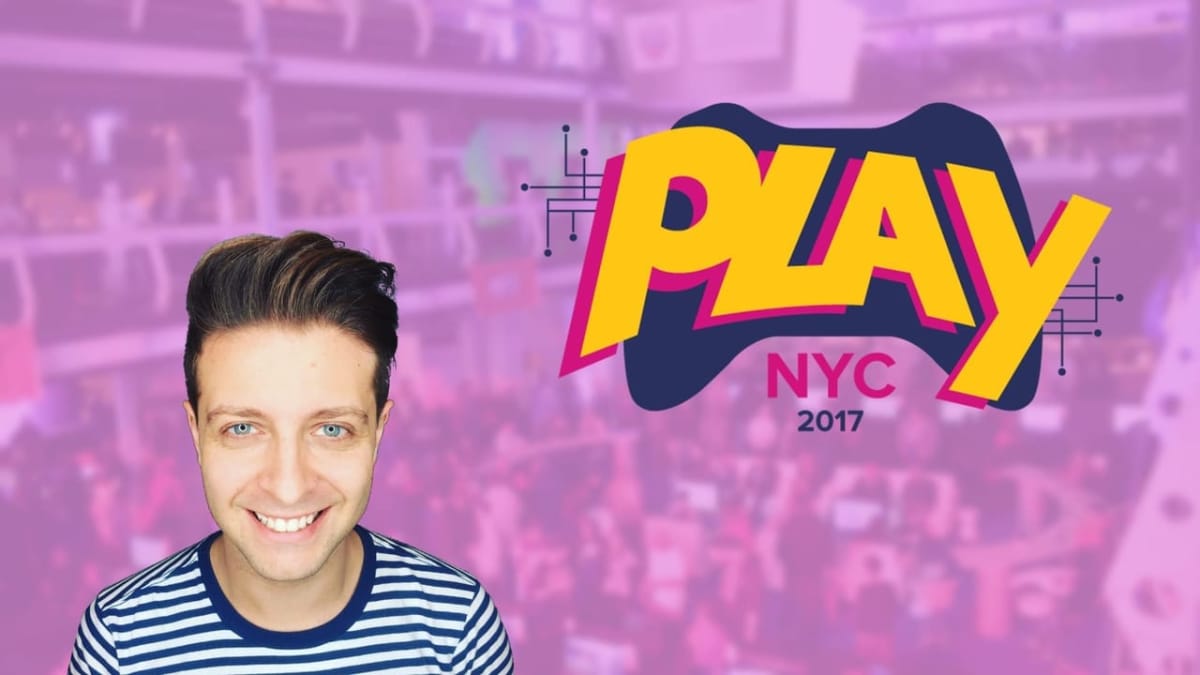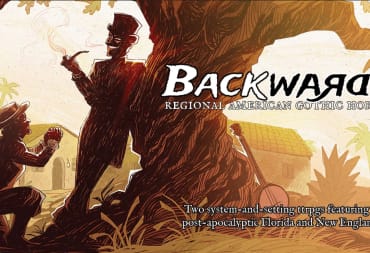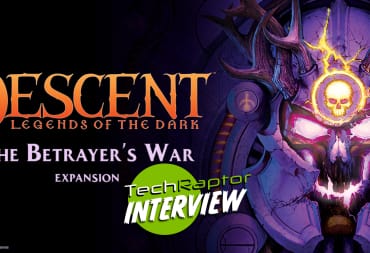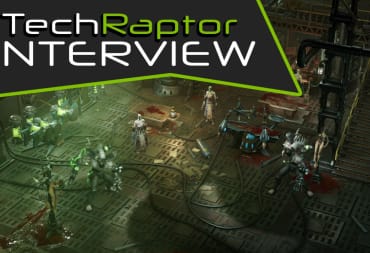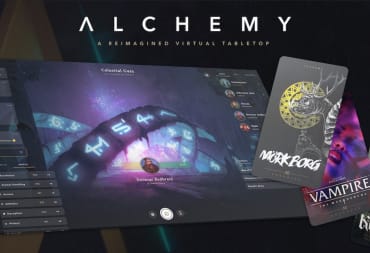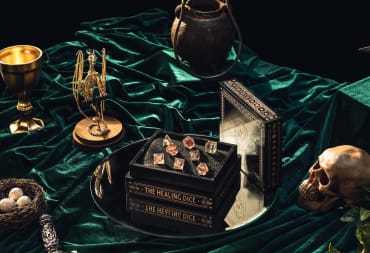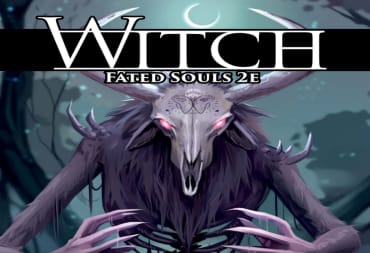Early in my career at TechRaptor, I searched for gaming events in the New York City area and boy was I coming up short. There was no equivalent of PAX, GDC, or E3 to be seen anywhere in Manhattan or the surrounding area. I found it to be rather strange; after all, New York City is the most populous city in the United States with over 8.5 million people living there and millions more commuting in every day. Tech companies ranging from Microsoft to Tumblr and everywhere in-between at least have offices of some level in the city, and yet when it came to game development, I was coming up short.
Part of the reason, I suspected, was the astronomical price of land in NYC. Even so, the Bay Area and Silicon Valley can just as easily break the bank, yet there is no shortage of gaming companies and industry events to be seen.
Eventually, I had Playcrafting brought to my attention. In my first piece about Playcrafting, I described it as more or less "a cooking class, but for making video games." This was no four-year commitment that cost tens of thousands of dollars; you could learn basic game-making skills in a few weeks. Supplementary classes covered topics ranging from financial advice to navigating legal issues and just about anything a budding game developer would want to know. I first interviewed Dan Butchko one and a half years ago, and my initial impressions of the organization as a whole were very positive.
A couple of years after my first contact with Playcrafting, Dan Butchko revealed what may be his biggest ambition yet: an honest-to-goodness dedicated gaming convention in Manhattan. He was more than happy to sit down with me and give me some of his time over two days to talk about Play NYC, an upcoming gaming convention that will be taking place at Terminal 5 from August 19-20, 2017. Let's get right to it!
TechRaptor: Let's start with telling our readers a bit about yourself and Playcrafting.
Dan Butchko: Sure. I am the CEO and Founder of Playcrafting. What we do at Playcrafting is we nurture, grow, and develop communities of game developers across the U.S. We are now in New York, Boston, and San Francisco and starting to grow out our presence in Seattle and [Los Angeles].
Our goal is to help train both veteran and aspiring developers through education that includes longer-form courses as well as some shorter-form classes. Everything that we do is in person so an education that you get through us is with a local developer that is actively making games. You're learning from them in person. We offer our educational content in a way that is a lot more financially and logistically approachable than going back to school full time or enrolling in a multi-year [program costing thousands of dollars] in terms of the larger schools. That's from the education side and we're also very well-known for our events which help to boost developers in the community that are just a part of the broader community as well as instructors and students that are a part of our educational programming. We use those events to help get the word out there about those developers - veteran and new - as well as foster connections. We like to have a lot of networking happening at those events. There's a big discovery aspect where developers will use our events to promote their games if they're released already as well as to playtest them to help polish the games before release. That's pretty much the overall gist of it.
In addition to our regular events and education in all those cities we are now also planning Play NYC which is our first-ever games convention coming in August of this year in Manhattan. Taking that energy that we have through all of the events and the education so far and putting it into a dedicated games convention the likes of which New York has not yet seen and we think it really needs.
TR: When did you come to the conclusion that Playcrafting would need to make use of a larger venue than the ones you've previously used?
DB: About a year and a half ago. [It must have been the Spring Expo of 2016.] It was obvious to us that our expos were growing and growing in terms of both developers showing their games and attendees coming to actually attend the event and play those games. Seeing how much growth was happening without us really advertising them was really the main indicator to us that maybe we should put some real budget behind it. Maybe we should put more advertising, marketing, and bringing in sponsors and larger-scale developers as well to put some oomph behind it and really nurture this event that we've been doing and grow it into a full-on games convention. That was really the indicator for us.
I know that even though our events have always been public-facing and have welcomed people from all different areas etc., having a larger-scale convention in a space that is more of an office building than it is a public event venue - we know it would be a big way to be able to not only have even more attendees come through but to really start attracting more developers, more attendees, and press from outside of the bubble that we are already have been reaching out to and involving with our regular [events]. It was sort of that combination of just what the limitation of the venue are as well as just seeing how much they've been going without us putting too much of an effort into growing them out.
[Really seeing] the first expo that we did, it must have been in 2013 and that one started with just 20 games and maybe 300 people. Now they're at up to 150 games and 1,200 people. That kind of growth, that quickly, without putting too much effort into it is just a huge indicator to us that this is the kind of event that New York needs and deserves. [It] will help put the industry in New York on the map for what it is and for what we've seen it is.
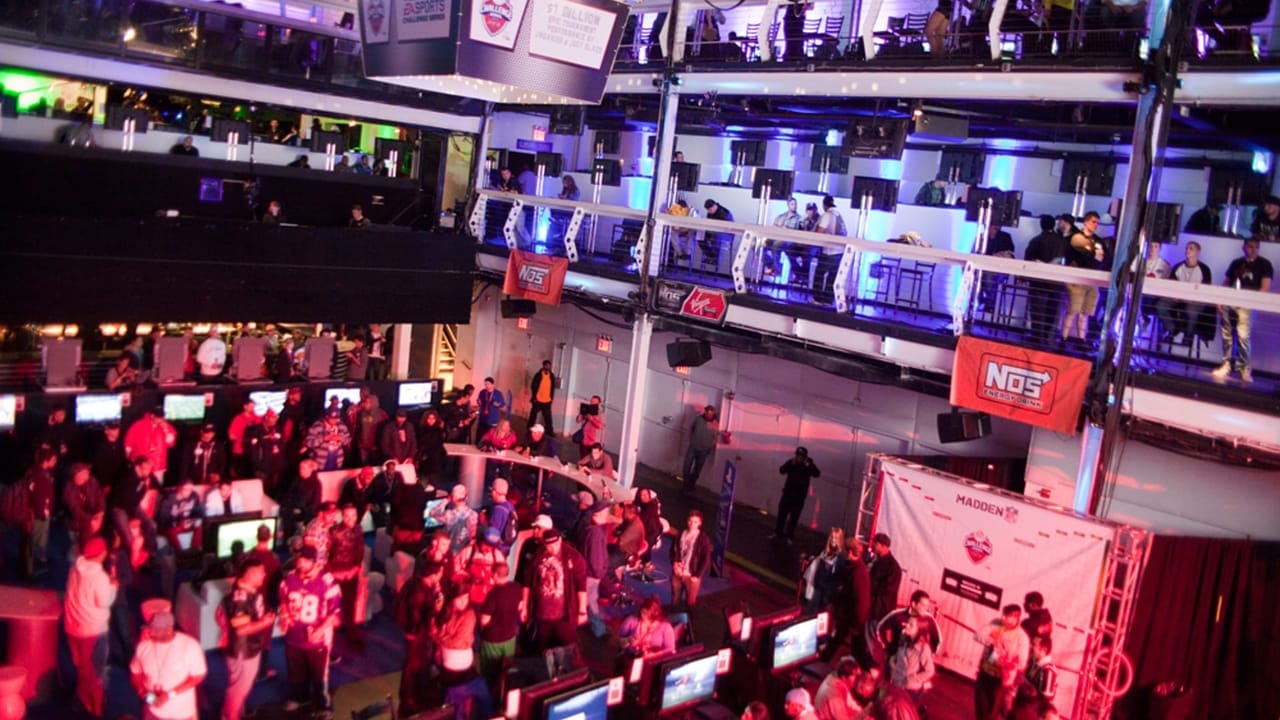
TR: At the '16 Bit Awards you initially announced that the Summer Expo for 2017 would be taking place on the U.S.S. Intrepid, but in a conversation with me at Spring Play 2017 you said that that particular venue ended up being too small for your ambitions. What led to the decision to host Play NYC at Terminal 5?
DB: First of all, with the Intrepid, we are going to be doing some more events with them in the future. We've already featured developers as part of their Kids Week event which happened back in February [2017]. We sent a group of developers to show their games and engage with families on site there so we did wind up already doing something with the Intrepid and [we] plan to be doing things with them in the future. The limitations of the space wound up putting us into a position where we want to start Play NYC with as much room to grow as possible and we wanted to [make sure] it started out with as few limitations as possible. Year 1, we can have it at 5,000 people and then hopefully Year 2, 3 we get to ten, twenty-thousand people. In order to do so, in order to get to those numbers, we need to make sure that it's set up for the best success in terms of turnout [and] in terms of [the] games that are there. In our conversations with the Intrepid, it just wound up making the most sense to move on to a different venue and have our partnership with the Intrepid be more focused on a specific kind of event moving forward and something that fits more into that space in particular. That's how we ultimately decided to go to a couple of other venues and ultimately landed at Terminal 5.
TR: Many of your expos and classes have been hosted at [Microsoft in Times Square] but you've recently expanded to other venues. The '16 Bit Awards, for instance, were hosted at the Parsons School of Design and you've hosted a demo night at the Tumblr building. And, as you've just said, you've had some [events] at the U.S.S. Intrepid. How much difficulty [have you had] in securing venues for your organization.
DB: We haven't really had the need to find additional venues because we have such a strong relationship with Microsoft. They are such a generous partner of ours. They're hosting all of our events throughout each of the month throughout the year and [they've] been such an incredible partner that now it's been more a matter of choosing what kind of events make sense to have in other spaces. We are just extremely blessed to have that relationship with Microsoft and [that really is] our base, it's our home in New York and we wouldn't have it any other way. [Since that relationship has been in place] and is strong, it's been more about picking and choosing what kind of events and what kind of content makes sense to have at different venues. We're all about making sure that our events have the approachability that our community is expecting [but is also] extremely professional run. [The] Microsoft space really has that perfect combination, but that being said [it] is more corporate-feeling and it is better-suited to our regular events that we're having as well as the educational content in terms of just what the feeling of the office is. We've [used] other venues to pick and choose [having] more of those outside-of-the-box events outside of Microsoft.
The Parsons connection, it wound up coming out of the fact that we already are hosting Parsons students, [instructors,] and faculty as part of our regular events in terms of both our demo and play nights and the smaller, regular expos. It's funny, I have to say "smaller, regular expos" because Play NYC is such a jump up. Parsons has already been a strong part of our community in terms of showing off student games and involving faculty. That piece just came out of talking to the heads of the design and technology program over there and seeing how we could have our [Bit Awards] in their space and have it be mutually beneficial. That one came up and it was so great working with them that we're now hosting the 2017 Bit Awards in their space as well which will be December 15 - same date as [2016], but now it's on a Friday. December 15 of this year at the [Tishman Auditorium] again at Parsons. So that's how that one came up.
The Terminal 5 one was the result of a much more arduous venue search. [Way] back in the beginning we were going to go with the Javits Center - at least part of the Javits Center, not the whole thing - [for] the Play NYC event but I decided ultimately to look elsewhere because we want to be smart about we're growing this event. [Going] from the expo as it is to renting out a huge section of the Javits Center just didn't make sense on a number of levels. We decided to move on from there and we were looking at other venues. The Intrepid came up as one, and then down the line Terminal 5 and a couple of other places came up. What we really wanted to do was... Play NYC, as an event, is something that has not really been done at all in New York before so we wanted a venue that can both support the event and be a great host but also has [a] very unique New York feel to it. Especially for the first year. So having it in a space like the Intrepid or like Terminal 5 which are special and unique to New York really was important to us. I think [it would have been a little bit of a loss] if we had had it at more of conventional event space like the Javits Center or in a hotel or something like that. Having it at Terminal 5 really allows us to put together something special in a place that is a lot more unique that other spots would be.
TR: Playcrafting has expanded to Boston, San Francisco, Seattle, and Los Angeles to one degree or another. Do you have your eyes on any other cities in the United States right now?
DB: Not right now. We have a number of people who come through with interest in starting up branches like [Austin, Philadelphia, Pittsburgh, and Orlando]. I definitely want to grow it out to other cities but I want to be smart [about] scaling upward in terms of both us being a company as well as a community. The primary focus now is to grow out the cities that we're already in. As CEO, I want to have a full-timer in each one of those cities. If I can get to that point then I will then be in a position where I'll start looking at other cities to expand to.
TR: Follow-up question: do you think you'll expand the organization to other countries, and if you were going to do that, which country do you think you would target first?
DB: I mean, since we're a start-up I want to be smart about it there, too. Canada would be the logical first step and then from there I'd say... if we were to go outside of North America I'd be interested in starting one in Europe, potentially London. And we've an interest in having something in Tokyo which I would love to get to. In a perfect world, we are [on] multiple continents and across oceans. [Right now, that's sort of] a pipe dream for me. But like I said, I want to make sure our communities in the U.S. are super built-out and supported through a full-time staff member before we move out to these other countries.
TR: That's fair, you want to strengthen your current position before growing too much. Although at the rate you're going, by 2020 I'd full well expect you to be in at least one other country, probably. I wouldn't be surprised, is what I'm saying.
DB: I would love that. That would be a good goal, I like that goal. [laughs]
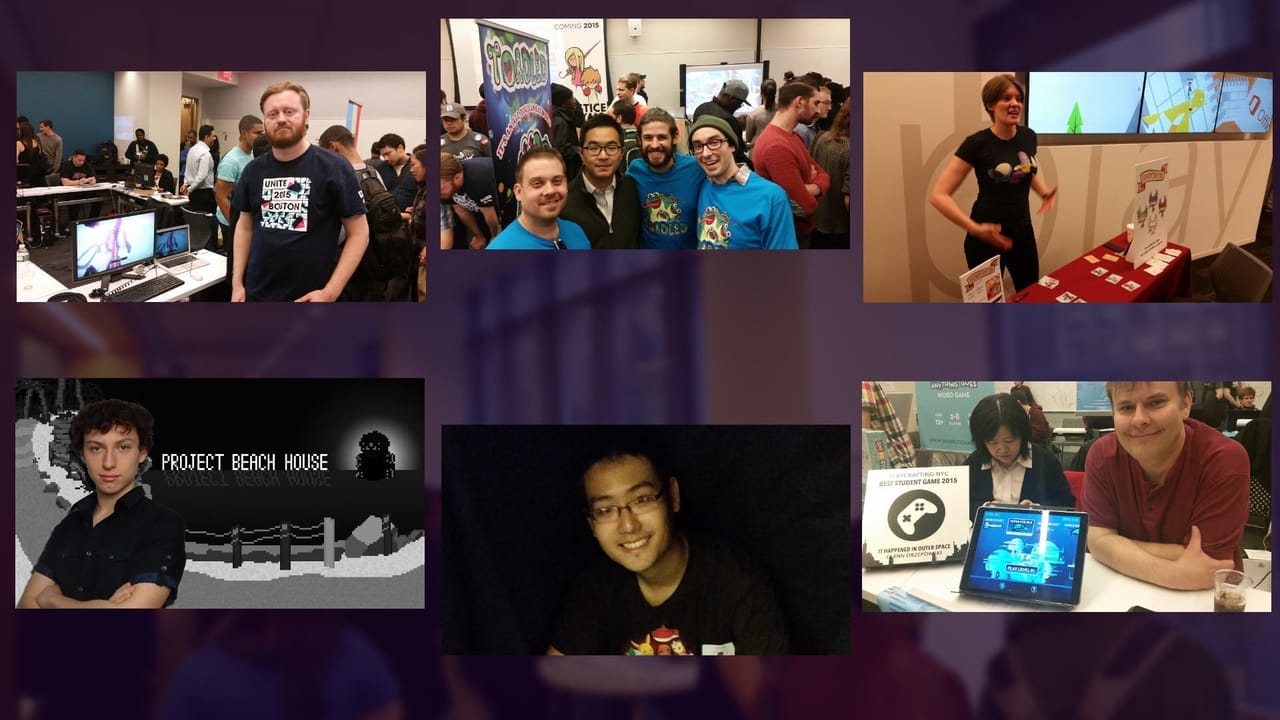
TR: When I first interviewed you over a year ago, Playcrafting was just really beginning to expand and really branch out from New York. Now you have locations in five cities across the country. Did you expect that your organization would have expanded this quickly?
DB: You know what, I did actually. [When] I first came in, I saw the community in New York and I knew that (given the passion and talent in the local community) that there [was so] much potential in what we were doing here. [With] someone dedicated full-time to building on it and helping it grow and making sure it was supported that it's the kind of thing that would catch fire easily and spread. [I knew] as soon as we had our eight week courses filling up and turning out some really great students and some really cool projects that within a year-and-a-half, two years we would be able to be in multiple cities and growing it out in that way. So yeah, I saw the potential early but I do kind of get a little bit taken aback when I look at the fact that when we announced the name "Playcrafting" - it must have been two years ago - it only went to 2,500 people whereas the announcement of Play NYC went to 25,000 people. When I look at those kind of numbers and I take a step back it is a little bit humbling to see how quickly how it's grown but that's just really a testament to the fact that this is such a strong community and we are so inclusive and so welcoming to people from all different backgrounds whether they're gamers or developers, whether they're students from within our community or students from outside of our community, [whether] they're independent developers or larger-scale developers. This sort of transparency and lowering the barrier for entry in terms of events and education is something that I think is the only way to go in terms of making sure that the community is supported and growing. That sort of growth is a real testament to that.
TR: What have you most enjoyed seeing created as a result of Playcrafting, either through a workshop or one of your expos?
DB: I think now that we've been doing our multi-week courses for about two years in New York we're just now seeing some of the developers and the studios that have formed because of those courses and some of the games that have started to release out of those developers. I think the game that I've gotten the most excited about is called Don't Look Away and that is a game that we've highlighted in a number of ways in the past few months because it came from a group of developers that formed a studio based on having met in our Unity course. I don't know what their download total is out now, but when we first did that announcement (which must have been [around March 2017]) they were at 100,000 downloads and that's incredible. That group of developers still takes courses and classes through us, [they're] still an active member of the community, [they've] taken advantage of our presence at the larger industry shows, etcetera. They started out as students, they're now presenters and T.A.s in courses as well. They kind of exemplify exactly what we're trying to do with Playcrafting which is helping to convert gamers and enthusiasts into developers - and not just developers for the sake of making games, but successful developers in terms of downloads[,] building their games portfolio, and getting the attention they deserve once those kinds of games and experiences have been built. Don't Look Away and the developer behind it (which is called EOS Interactive) sort of is my favorite story from the community that's come out in the past year.
TR: Game development has gotten steadily more accessible in terms of the technology and cost of entry. While this means that a lot of great games that would have never been published get out in the world, we've also seen a lot of low-effort games out there. In some cases, developers have put together slapdash titles made from a bunch of Unity Store assets in order to make a quick buck. Do you think the growing accessability of game development has ultimately been a positive thing for the industry or has it been a bit of a mixed bag?
DB: I think it depends on what perspective you're looking at it from. I am looking it from the perspective of community-building and wanting to lower the barrier for entry for developers or for people that are brand new to be making games and to get started quickly. From that perspective, I think it's been a huge positive. It depends on what the goals of that developer are and that's something that we try to make sure comes through with all the events and education that we put out there. You can make games based purely on passion and wanting to push the envelope in terms of what games can do and what they can be and that is a great way to have games as a medium elevated and games as a part of society reach out to people who perhaps don't consider themselves "gamers". [At] the same time, as long as no rules are being broken in terms of assets, in terms of copyright, etcetera there are super, super simple games that are made that make brand-new developers a lot of money. Look at Flappy Bird. That's a great example of a game that was made with a very simple mechanic in place, a very basic art style in place, and [it] took off exponentially. There's a place in the games industry for both kinds of games.
[This] is even in terms of education and events as well as the industry as a whole. [Looking] at games as something that be a conversation starter and connector for people culturally as well as just being something that can make a quick buck. We're at a point now where there's so many marketplaces out there and the tools are so accessible for people that you can go into game development for any number of reasons. Our mission at Playcrafting is to get as many people making games as possible. What their intention is in terms of making games - whether they want to be an envelope-pusher and making games as an art form or they just want to churn out some games that are gonna make them a quick buck - the point here for us is to get as many people making them as possible and to understand exactly what the possibilites are, what the tools are, what companies they can work with, what other developers they might be able to work with in achieving those goals, whatever they may be. Obviously, within the boundaries of making sure you're not, you know, just grabbing someone's game and re-skinning it or using someone's assets without permission. We don't advocate for any of that. But, we do advocate for people to make games with whatever intention they wish as long as it's wihtin [the] confines of what those rules are and they understand what the path ahead may be.
TR: I imagine that as the head of Playcrafting, you might be reluctant to name favorites but I have to ask anyway: are there any games that you have been made or showcased at Playcrafting that you've really personally enjoyed? I suppose aside from Don't Like Away since you kind of mentioned that you really liked it. I mean in terms of you actually playing it and you really personally liking the game itself.
DB: Obviously, since we're a community I like seeing anyone in the community put out a game that resonates, period. Whether it resonates with me personally or it resonates with the larger community and with gamers in terms of downloads, in terms of sales, etcetera. My background, originally, is in social work. In my social work training, everything was all about empowering clients. It's all about helping. Let's say you opened up your own therapy practice, it's all about empowering clients to find their own solutions, to improve their lives. I take that mentality to Playcrafting 150%. When I'm at these different events, I'm there trying to empower developers to become succesful at the medium they're trying to master.
TR: Let me interject real quick, just for clarity's sake. By that question, I [meant have] there been any games that you yourself have enjoyed playing personally for the game itself irrespective of the developers or the work they've done.
DB: Yeah, no, totally. And that was like a long-winded way of me giving the caveat that it's very hard for me to separate developer from game because that's who I'm interacting with first and foremost at all times.
TR: Okay, that's fair. [laughs]
DB: [Obviously], I am a gamer as well and there are certain genres and certain styles and games that resonate with me personally as someone who just enjoys playing games. In terms of mobile games, I'm not a huge mobile gamer. I like having specific screens devoted to specific purposes in my life. I'm not typically playing mobile games. If I do, the games that have really resonated with me have been a lot of the games that have come out of Simple Machine. I think of Pop The Lock which was their biggest success. This was sort of a very simple art style twitch gameplay game that I got excited about. [It] wound up being extremely successful for them [in] terms of downloads. Pop The Lock was a big one. [Another was] Smove, that was another one that I got completely obsessed with topping my high score. [On] the mobile side, that's been my main developer that I have followed. Now obviously, I'm now close friends with that team. They do a lot with Playcrafting as a whole. But me as a gamer, on the mobile side that's resonated really well.
Most recently, on the PC/Console side, the game Slime-san has been completely captivating to me. I've played it at some of the events that we've had. Because I'm not - this is like heresy for most hardcore gamers - but because I'm not a PC Gamer, a lot of these games will come out first on Steam and I will not play them unless they're at an event. Again, because I like having specific screens for specific purposes and I don't want to, like, open my laptop and play games. [laughs] I want to close my laptop when I'm done with work and look elsewhere for games. But Slime-san is coming to consoles as well, I'm extremely excited about that. Linelight was another one, that one came to PS4 and I fell in love with that one last year.
From our San Francisco developers, there was a game called Gravity that was mobile game that we highlighted at the awards last year as well. Because I'm a gamer and I'm also super-invested personally in all of the developers in our community, this also has been a reason why I've made sure that we have a panel of people choosing the awards.
TR: You want to keep bias out of it.
DB: Yeah, I want to make sure [my bias] is kept out of it. There's obviously a curation aspect to it, so of course we don't just open it up to the public and have like general public people voting. We might do something like that as the awards are growing in the future. There's been times where, you know, I want everyone to win. [laughs] And I'll think that one thing is gonna win but it doesn't versus the other. [Especially] on the awards side, I wanted to make sure that was clear because it becomes very difficult to pick one thing over the other because I like these games for different reasons.
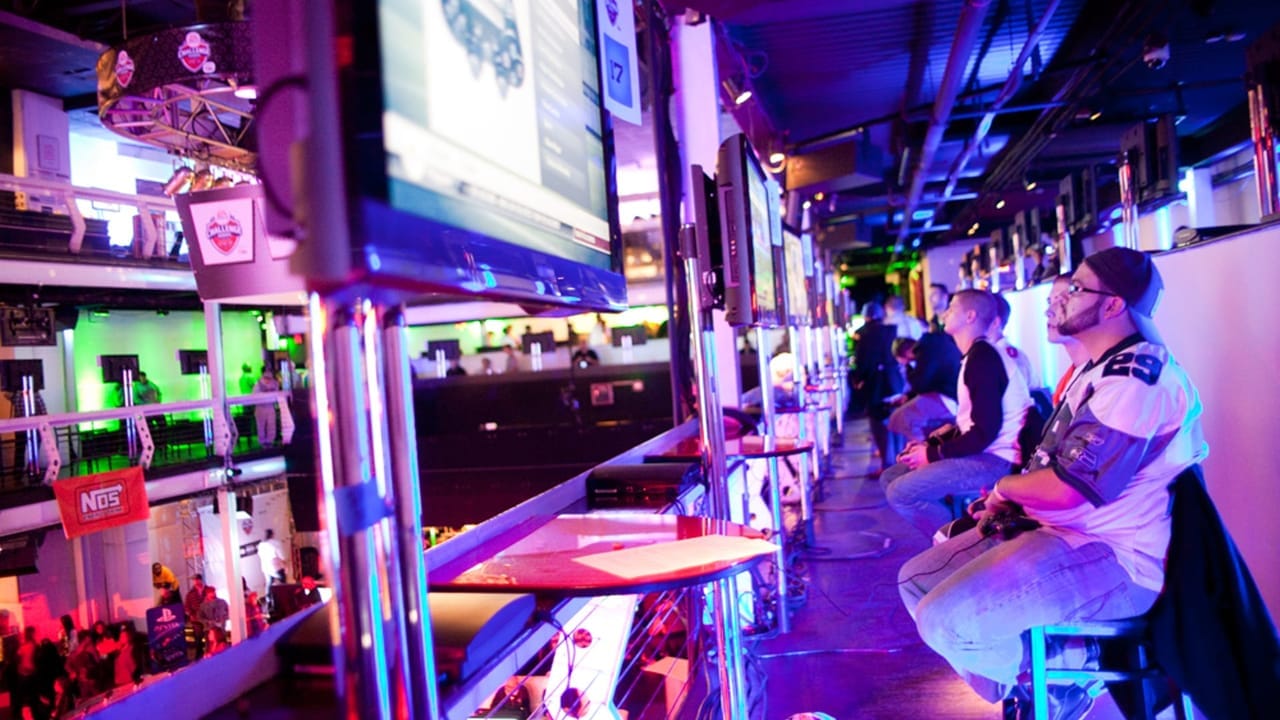
TR: All I've heard from that conversation is you're not a PC gamer. That's heresy, and you should get a gaming PC. That's what I've heard. [laughs]
DB: [laughs] If there's a way to [be] a PC gamer without having to have a PC. Maybe I need to get one of those Steam machines.
TR: Well, I mean, you could always just get like a desktop and keep it just for games and keep it separate from all your social media stuff. A lot of people in the industry have their "work computers" for e-mail and stuff and then they have like their "gaming computer". They don't even have Tweetdeck installed. When they go on that, they're just sitting down to play games just as if they were using an Xbox or a PlayStation.
DB: It's also the controller for me, too. I hate using a mouse and keyboard for games. Hate, hate, hate. So anytime I've played games on Steam - it's been a few times because I do have it on my laptop - I've only used games that are controller-accessible.
TR: Controller-accessible. Okay, I'm learning some things, Dan. I gotta say, not really going with the mouse and keyboard, I might have lost a little bit of respect for you.
DB: [laughs] Fair enough!
TR: I joke, I joke. Now, what about games outside of Playcrafting? Not anything that you've seen exhibited at like a show or anything like that so you don't have to worry about potentially hurting any feelings of the people that you've worked with. Is there anything that you've really found yourself enjoying either [for] mobile or console [games]?
DB: Yeah, console is, by far, my gaming platform of choice. I am a Nintendo fanboy at my core. I left GDC a little bit early so I could get my Nintendo Switch on launch day in New York from my nearby Best Buy and I've been playing [The Legend of Zelda: Breath of the Wild] religiously. I'm almost at 70 hours and I think I've only uncovered half of the map because I'm just so lost in that world. Zelda is like my number one game series by far. In terms of on the indie side with console games, I really loved What Remains of Edith Finch. I just finished that a [little while] ago on PS4. I have a whole catalog of games like Nier: Automata [and] Horizon: Zero Dawn that I want to start playing but I am kind of waiting until I decide I'm done with Zelda because I'm so obsessed with it right now.
TR: You're not the only one.
DB: [laughs] Rightfully so, too. It's such an incredible game. As someone who is such a passionate Zelda fan, I am so happy that it was worth the wait and the multiple delays but I was also vocal complaining about them along the way. It was completely worth the wait. [Right now] it's been Nintendo Switch games other than that: Mario Kart, Minecraft - I just think that that platform being both portable and console is changing my perspective and the way that I want to play to games. And now the idea of diving into [Horizon: Zero Dawn] and Nier: Automata without being able to take it on the go with me sounds so limited and backwards. I'm hoping that the Nintendo Switch will take off more and more as it seems it has been so that more even more games will be brought over cross-platform to it.
TR: Now, you're probably far too busy to make a game yourself, but nearly everyone in the industry has an idea or two floating around in their head. If you had the time and the money to make it, do you have any game ideas of your own? Does anything pop into your head like, "I would really love to make this"?
DB: I originally was thinking I wanted to be primarily a game developer and I might like dabble in it a little bit more. I did like a whole set of mock-up screenshots, I was working with a developer friend of mine to get it made but then Playcrafting started off exponentially so it kind of put it on the back burner. It was a mobile game that was an endless musical runner where you're going throughout the level and as you're - it was 2D, side-scrolling, and as you're going through the level you're making music that you could then share with people. I want to get back to that. I loved working on that. I've seen a couple games out since I had first thought of it that used some of the ideas that it was originally envisioned to do but that really was sort of something we were working on for a while that I didn't finish that I'd like to get back to at some point.
TR: One of the things I've noticed about many of the exhibitors at Playcrafting is a distinct lack of more formal business clothing, something that seems pretty common in the tech industry. You're just as likely to see someone in khakis and a hoodie as you are to see someone in slacks and a dress shirt. Do you think this more-relaxed atmosphere is a good thing for the gaming as a whole, and are you at all concerned that it might not be taken as seriously by the business world due to the lack of suits & ties that you would see in other industries?
DB: It's funny that you ask that because when I first came in and started Playcrafting I was going to all of our events in dress shoes and nice pants and a button-down, tucked-in shirt. People would poke fun at me for getting so dressed up. I scaled it back a little bit but I do still dress profesionally, just a little bit relaxed.
TR: Business casual.
DB: Business casual, yeah. I like business casual as sort of that medium. One of the things that we are trying to make sure comes through (and this is completely related to dress code as well in the games industry, in terms of our events): if you're making a game and you want to... you're super passionate and talented and you're putting together this game that is extremely well-made and might have addictive gameplay and resonate well with people, you want to treat it as a business. And that goes from the actual planning out of how the game works, planning out what the marketing and PR schedule is around it, getting your website up, putting in an actual registration to become a real company, etcetera. If you want to go down that route and actually make games as part of a business then you should treat everything super professionally. I like that idea coming through in all of those different areas all the way down to dress code. That being said, our regular events are - they are completely community-based. We do some more formal events like the '16 Bit Awards, like some more formal meetings that we'll set up between partners and developers where it's made clear that you're meeting with [a] potential investor or this is a great marketing opportunity. It's made clear where perhaps that should be something that's considered. At the same time, though, this is a very creative community and that goes through with like physical expression as well. I think of it [as] a line that has to be walked. [We're] making games for a living here. We're not doctors and lawyers. We're not in a position that is extremely super corporate. So one hand, I don't think there's a need to have this formal attire but [you] need to know your audience. Playtesting a game at an event versus sitting in a board room with potential investors - those are very different environments. [In the end,] people care the most about the projects that you're making. Even an investor, if an investor is in a room with you and you were wearing, I don't know...
TR: A t-shirt and shorts?
DB: Yeah, a t-shirt and shorts, and your game is absolutely incredible and beautifully-made, it's not really gonna make a difference. There's a little bit of an expectation at this point that game developers are a little bit more relaxed. I think the games really speak for themselves. But, you know, knowing your audience and getting to know the potential partner or investor that you're going to be working with, I think is gonna be the best way to sort of gauge what the dress code can be. I'm not in a position to police people, I don't think there's a need to do it, and I don't think it harms the industry. I think it's (as with everything) a matter of just knowing your audience and what relationships and what meetings and what events make the most sense for dressing appropriately.
TR: Hm. Well, Mark Zuckerberg walks around in shorts and sandals all the time and that dude's a billionaire, so.
DB: Exactly!
TR: I guess a lot of people are just following his lead. Speaking of fashion, I've literally never been able to take a picture of you that looks bad. [laughs]
DB: [laughs]
TR: I think it might actually be physically impossible for you to not smile. What's the source of your relentless, neverending positivity?
DB: I think it's the fact that I look at Playcrafting as a privilege for me to be a part of. When I take a step back, I think to myself - when I was 14 years old, super nerdy and social but awkward, games have always been my biggest passion. Looking back to that time and watching the E3 press conferences or reading about E3 and thinking, "Oh my god, imagine if I could go there some day, that would be incredible!" and now I'm like able to do that and I'm able to work in games. We're not sitting here brain surgery. We're not building rockets, this isn't rocket science. We're working in games. I think it's such a privilege and an honor to be able to work in games in general and really to be a part of the lives of these developers who are very often sacrificing any spare dime, any spare moment of sleep to do this thing that they're extremely passionate about. Especially if they're an independent developer and not [working] 9-to-5 for a larger studio. [Even] when there's parts of my job that I am super sick of doing, when there's the monotonous pieces that I don't want to do, that I dread having to go to in terms of my to-do list... I sort of take a step back and I look at that, that perspective. Plus, this organization was built around community and I know that representatives of Playcrafting (myself as well as our advisors, our instructors, my staff members) we are supposed to be helping to curate this community and build it and grow it. Positivity, while also being realistic about what can be accomplished and how developers can get there, is really the only way that we can help grow out the communities and [continue] to be what we are right now.
TR: So I think it's safe to say you really love your job. [laughs]
DB: Yeah. [laughs] As soon as I start losing that luster a little bit, I work with our team and we come up with something exciting and new like Play NYC to do that pushes some of my creative buttons a little bit more.
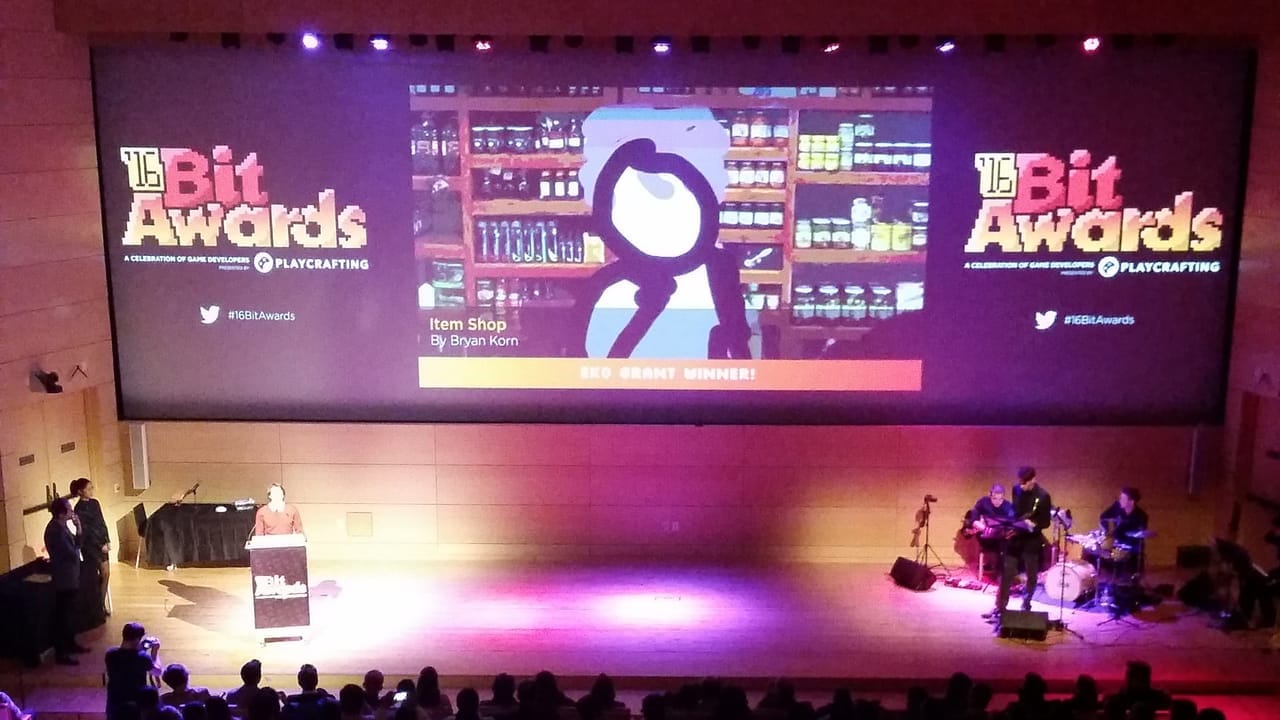
TR: On to Play NYC: what led you to branding this separately from Playcrafting?
DB: Our usual expos, they were at one point called like "The Playcrafting Spring Expo", now it's like "The Spring Play Expo". Everything's always about "play" whether it has the word Playcrafting in it or not. I think that by giving it the name "Play NYC" it really has the most inclusive and welcoming vibe to it. It's very obvious that Playcrafting is the organization that's making this but I don't need it to be called "The Playcrafting Expo". That doesn't serve the community at all. It needs to be called something that is as welcoming to people from within the games community and outside the games community as possible. [I] knew as soon as I made the decision to move forward and start building this, "Play NYC" was the name that came to mind. [It's] so completely blunt and short and sweet that it says it in one word, "play" - exactly what you're gonna be doing there. I think that like going with that is the way to best connect to the communities that we're already a part of as well as growing them out and attracting people from well outside the Playcrafting or the larger games community.
TR: Play NYC, it's going remain intertwined with Playcrafting? You don't think you'll spin it off into its own thing or anything like that?
DB: It kind of is its own thing already. It's just sort of organized and backed by Playcrafting. I see Playcrafting and Play NYC and hopefully Play NYC takes off (which I think it will). And then we can do Play Boston, Play San Francisco. That's another reason why it sort of has that short name to it so it can happen in multiple places. I think that the feeling of Play NYC and the mission of Play NYC is a complete mirror and extension of what the mission and purpose of Playcrafting as an organization is. I don't see the two separating at all anytime soon.
TR: Why do you think no organizations have stepped forward to commit to gaming in a big way in the New York City area? What's the big hurdle to overcome? Is it just about the lack of adequately-sized convention space or do you think something else is going on?
DB: I think it's a combination. A big part of the reason why when people think of Meccas of the game industry, they think of San Francisco, Los Angeles, Seattle, Montreal, for example. That's because there's so many larger studios that are present there. And the presence of the larger studios is a big indicator as to why tax credits for game development on a governmental level really make a huge difference. I do think that if we were to have that in New York state it would make very big difference in terms of helping us [put] New York on the map as more of a center of game development in terms of the larger community. When I hear people in San Francisco and other cities discount New York as a community, as a large-scale community for game development, it's mind-boggling to me because we are an organization that is based on game development. [We're] completely based on building game development communities and [New York] is our oldest and by farlargest branch. We're kind of the exact antithesis of what they say about New York. I do think it has to do with the government support in a big way which then leads to having larger AAA studios in that location. We do have Avalanche which has an actual large-scale studio and in-house dev team in New York. The big mobile studio is Dots here. Rockstar obviously has a big office but it's more on the marketing side and production side than it is on the actual development side. I think if the government level changed then that would sort of help both in terms of perception as well as the studios being present here.
[It] is, frankly, expensive to do any event in New York - especially in Manhattan. I definitely see that as a barrier as well. But because we have been doing these larger-scale events and multiple-week courses for so long in New York, it feels like the right time and we feel like the right organization to really champion having New York's first real dedicated games convention. I think there might be a little bit of a ground-up mentality behind it, too. Having a big games convention in New York might help get the attention of the government level and help really get some momentum going in terms of passing some legislation as well.
TR: How many exhibitors to you expect to attend Play NYC?
DB: I'd say we'll have at least 100 if not up to 200. It's hard to see where it's gonna land just yet because we're still so far out.
TR: It's still pretty early, okay. Well, suffice to say it won't be as cramped as the Microsoft I hope.
DB: Right. [laughs]
TR: You get a hundred [developers] in those and sometimes you're shoulder-to-shoulder. It doesn't make it any less fun, but space is a little bit tight.
DB: Exactly. [laughs]
TR: How many attendees do you hope will show up across both days of the event.
DB: 5,000.
TR: That's the goal you're shooting for?
DB: That's the goal. Hopefully we can max it out at 6,000. I'd love to get to 6,000 and sell out completely but if we were to get to 5,000 I'm not gonna complain.
TR: In the quotes you provided to Polygon, you stated that there will be some big names and big games coming to Play NYC. Can you reveal any of those just yet or are plans still in the works?
DB: Still in the works. We do know that a big part of getting a convention like this together is having some more recognizable games and names in place and so that has been a big priority for our team to start so that in the next few weeks we can start making announcements around some of those names and games that'll be there. We did already secure our first big developer which is Avalanche Studios, so they will have a presence at the event. I can definitely say that one.
TR: Gaming and anime conventions have a focus on the developers showcasing their wares but a sales floor is often a part of these shows as well. Will Play NYC have a Dealer's Room or an Artist's Alley in its first year?
DB: There's not going to be a totally separate place for that. There will be some stations for exhibitors and for a couple partners to be selling things but there's not gonna be a dedicated section for it this year. I'm sure in the future as we're going we'll want to make [sure] it's clear where the more "selling" areas are. But for year one, it's gonna be more of the developers at their booths can use their booths as they see fit. That being said though, this is called Play NYC because we want every booth to be playable. [When I say] 100 to 200 developers, I want 100 to 200 playable booths. I have been very clear with the exhibitors and partners that we're bringing in [that] regardless of whether [or not] they're selling something at their booth to make sure that you have playable games that are relevant to what you're doing as well. [We] don't want this to become a bit schmaltzy sales beacon, you know?
TR: Fair enough. Let's fast forward a couple of years and talk about the future of Play NYC. Terminal 5 has a capacity of around 3,000 people. If you think your attendance is going to go above that number, how would you handle it? Would you change venues or add on additional sites like how New York Comic Con is split across four separate locations?
DB: I'm not sure. That will be dependent on when we do our pow-wow after this first year in terms of what were the positive and negatives of this specific venue and where did all of the attendance and the booths and everything land. No matter whether we're changing venues or just building on what we're doing at Terminal 5, it's gonna depend on what's around that space. One thing that we did talk about: because the Devs & Pros pass that we have is part of this event gives access to the talks and panels and right now that's on the rooftop courtyard at Terminal 5. Obviously we're doing this event in August and we don't want people to be overheated or if it's raining we don't want to be rained. We are going to be talking to a couple of venues around Terminal 5 as a space that we can use for the talks and panels piece if we needed to use it. I think that that will also help dictate the viability of, you know, let's say we max out at 5,000-6,000 people this year and next year we think it'll be 10,000 - whether it means we do multiple sites around there versus going to other places. Some of the other venues that we were looking at are larger [(like the Javits Center which I had previously mentioned)] and there is somethig to be said about taking it to a space that is just a, frankly, a larger venue. But, I don't want to lose that unique New York feel so it will sort of be a balancing act that will play out as this event goes through.
Interviewer's Note: At this point, Mr. Butchko unfortunately ran out of time and we had to finish the interview at a later date. The conclusion follows from here.
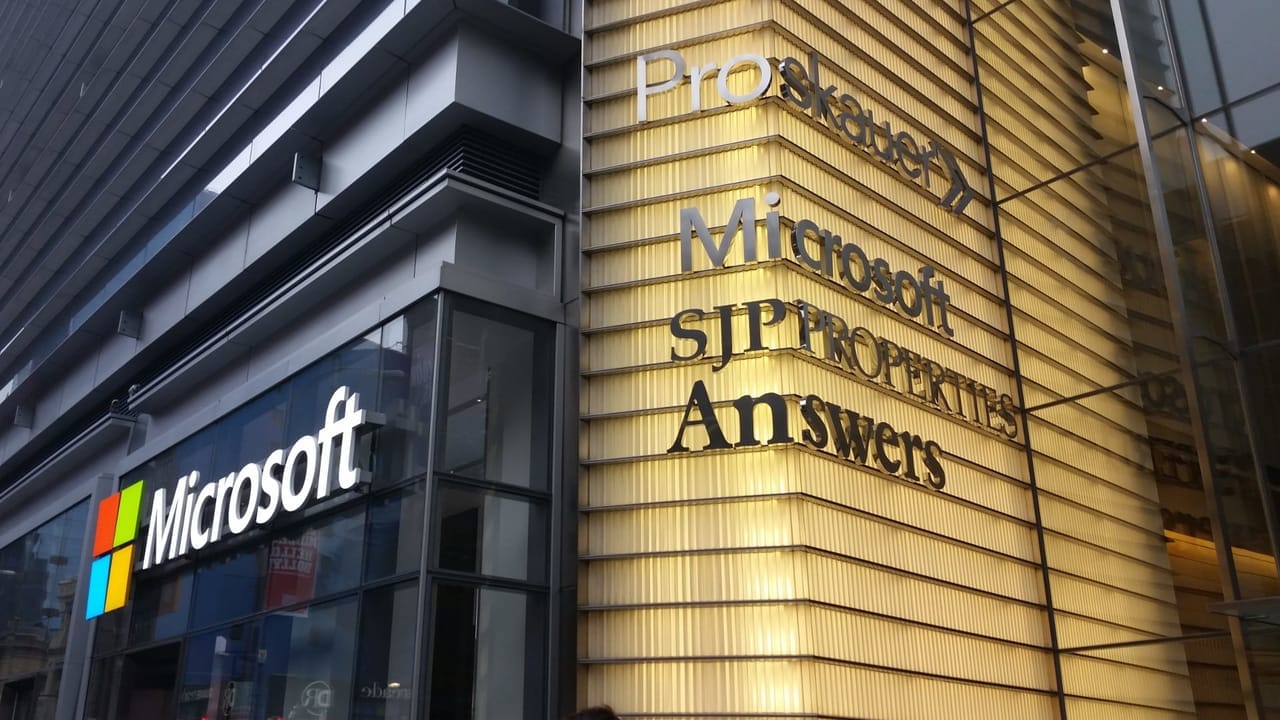
TR: Attendance numbers for conventions are sometimes a bit controversial depending on the method used to count. That said, I think it's fair to say that many conventions (gaming, anime, or otherwise) easily have attendance numbers in the tens of thousands and some of the bigger events in the world probably cross over the 100,000 mark. Do you have eyes on any venues if Play NYC gets too big for Terminal 5? I mean like really, catastrophically big.
DB: I think the Javits Center would probably be the place to go for a giant event. Let's say we're getting into like the tens of thousands. I think a big priority for us is to try to keep this show in Manhattan for as long as possible, too, because it is central and easy to get to from neighboring states. That's sort of our primary goal and obviously the biggest venue space-wise in Manhattan is the Javits Center. That would be where we would probably end up. But as long as possible, I would to keep this event in venues that have more of a unique feeling to New York so I don't think we would jump right from Terminal 5 to Javits. Ultimately, if we got that big we'd go there.
TR: So you would probably do something in microcosm to what New York Comic Con does? Split across multiple venues or something along those lines?
DB: Right.
TR: What has been the most difficult thing about organizing an event of this size in terms of logistics?
DB: Oh, there's a lot of things that are very challenging. [laughs]
TR: [laughs[ Are you gonna need the whole half hour?
DB: Yeah, right? I think the right venue partner was one of the most challenging pieces. You know, since we run everything out of Microsoft now it's so easy to work with that team and since the events are only up to 1,200 people (which is still big for the kinds of events that we've been doing) it's been very simple to run them to this point. Finding the right venue partner was a really big hurdle for us. That's part of why (as I've mentioned before) we started looking at one place, then going to the next, and ultimately landing at Terminal 5. That's one big part of it. I think that, you know, this being sort of an evolution of our regular expos, we put a lot of thought and time into what this going to cost to attend for the general public as well as to show games as an exhibitor and a developer. Fortunately we've been able to keep pricing along those lines very, very low to this point but now that we are making a pretty substantial investment into getting a much a larger space, promoting it to the public, etcetera, that obviously means that we have to charge folks and raise the price a little bit so we can at least break even on it. I'd say that between the venue and pricing it well, that's been the biggest hurdles so far. I think that the next [few] months are really gonna reveal even bigger hurdles like finding the right promotional partners (which we're working on right now). [In] terms of the larger games industry and community outside of New York, we're trying to use this event to help put New York on the map in terms of the games industry as a whole so getting bigger names and bigger games involved with this event - especially when you're just starting out with it - is I think going to prove itself to be perhaps the biggest hurdle.
TR: Playcrafting has always had a strong focus on indie developers, but Play NYC is going to be bringing some bigger companies to the forefront. Are you concerned that larger gaming companies might overshadow indie developers and how do you think you would balance the two at future Play NYC expos?
DB: I think that the idea that the two are mutually exclusive is sort of a myth in my view. There's ways to use the attention that much larger games brings to help benefit the smaller indies that will be there. That's why I started out with the goal of five big games as part of this show. We can have to about 150 games at this event, I think, at this event. Even just getting five big games and having the rest be start-ups and smaller independent companies will highly benefit and balance out the rush and the notoriety of the larger games versus the smaller ones. I think it's all about placement in the end and finding ways to make sure that these games that frankly need the attention more and need the playtesting more because they're coming from smaller teams and smaller groups. Finding placement on the show floor so that they're benefitting from the physical foot traffic of the larger games is definitely something that's going to be key as we're moving forward. We're all about indie games and indie developers, that's the real core of Playcrafting from the start and we are not going to abandon them by any means. It's just a matter of making sure we're sort of leveraging these larger players that are coming in to help shed light on the smaller ones as well.
TR: So you think you would do stuff like, "We have this big AAA shooter" and try [to] put similar indie games around it? So when someone goes to see [the big AAA game], they might be like, "Oh hey look, here's another shooter game! This looks interesting!" Like that kind of a thing?
DB: Exactly. There's a curation that comes into play here. Positioning those kinds of games around each other makes a lot of sense. Play NYC is welcoming developers from all over but I really want to make sure that showing off companies and projects that are coming out of New York in particular is highlighted. We are working on having some kind of signifier at the event that's like a "Made in New York" kind of thing as well. [That's] regardless of size of team, even though New York is mostly smaller developers. That's another consideration when we're doing placement and we're bringing developers in. Terminal 5 is an interesting setup because it's not just like one giant expo floor like some of the other venues. It has levels to it so we're working on how the layout really be used to help spotlight these different games and get that curation and foot traffic piece in place so that all games are getting attention.
TR: Kind of sounds like you're planning a wedding but in a way bigger building. Gotta get all the seating right.
DB: Exactly, exactly.
TR: Ultimately, what are your hopes and aspirations for Play NYC, short term and long term?
DB: Short term, I want to hit 5,000 attendees and I want to get those five big names and five big games involved. If we're able to hit those, then I think that this is a huge success. Long-term, I mentioned before that our smaller expos - it's always weird saying "smaller" because they aren't small, but now in comparison to this they are smaller. Our smaller expos, given how much energy and how much momentum they've had, it's been a real indicator to us that this convention is the kind of event that New York needs. In the long term I want Play NYC to become the premiere games convention in New York and become sort of what like the annual games industry and broader gaming public event that New York is known for. That's the longer-term goal and I think we can get there. This year is very much our proving year and I think we'll do it, and then next year we'll be able to say, "Look how incredible this was for year one, look at where we're building from here."
TR: Is there anything else you'd like to get out to our readers?
DB: Just that New York as an industry for games is such an incredibly welcoming and diverse place to be making games and playing games and I really want Play NYC to embody that. We would love for folks to come in from far and wide to come check out this event for something that really is gonna have a very New York feel to it. Unlike any of the events that are going on in the broader gaming industry in San Fran and LA, this is going to be a really signature New York experience. [Really,] the core of it [is that it's] called "Play NYC" because the event will be wholly playable and completely focused on games. Whether you're just a gamer or enthusiast or you're looking to become a developer or both, all are welcome and you'll be in a place that has a very diverse and inclusive and welcoming community of developers and players. It's just going to be a great time so we hope that as many people as possible will join as we're building this moving forward.
TR: Thanks for your time.

I'd like to extend my thanks to Dan Butchko for talking in such detail about his convention at a time when he is enormously busy. Running an organization like Playcrafting spread out over multiple cities must surely be an exhausting affair, and I would wager that putting an event on the scale of Play NYC together must have doubled his workload. Even so, I was fortunate to be able to ask every single question I wanted and I got many insightful answers in return.
I'm looking forward to attending Play NYC myself. This will be the first dedicated gaming convention I'm going to. It will also be my first time attending an inaugural event - something I've always wanted to do. I'm really looking forward to it, and if it's half as jam-packed of fun and games as past Playcrafting events have been then I'm sure it will be a treat.
If Play NYC sounds like the kind of thing you'd like to go to, you should head on over to play-nyc.com to read up on the event. Quite a few game developers are going to be there (both small and large), and you'll more or less be able to get hands-on with every title. I think it will be an experience that should not be missed.
What do you think of Play NYC? Do you think it's possible to grow a large gaming convention in the heart of Manhattan? How important is it that you can actually play games at an industry event? Let us know in the comments below!
Have a tip, or want to point out something we missed? Leave a Comment or e-mail us at tips@techraptor.net
